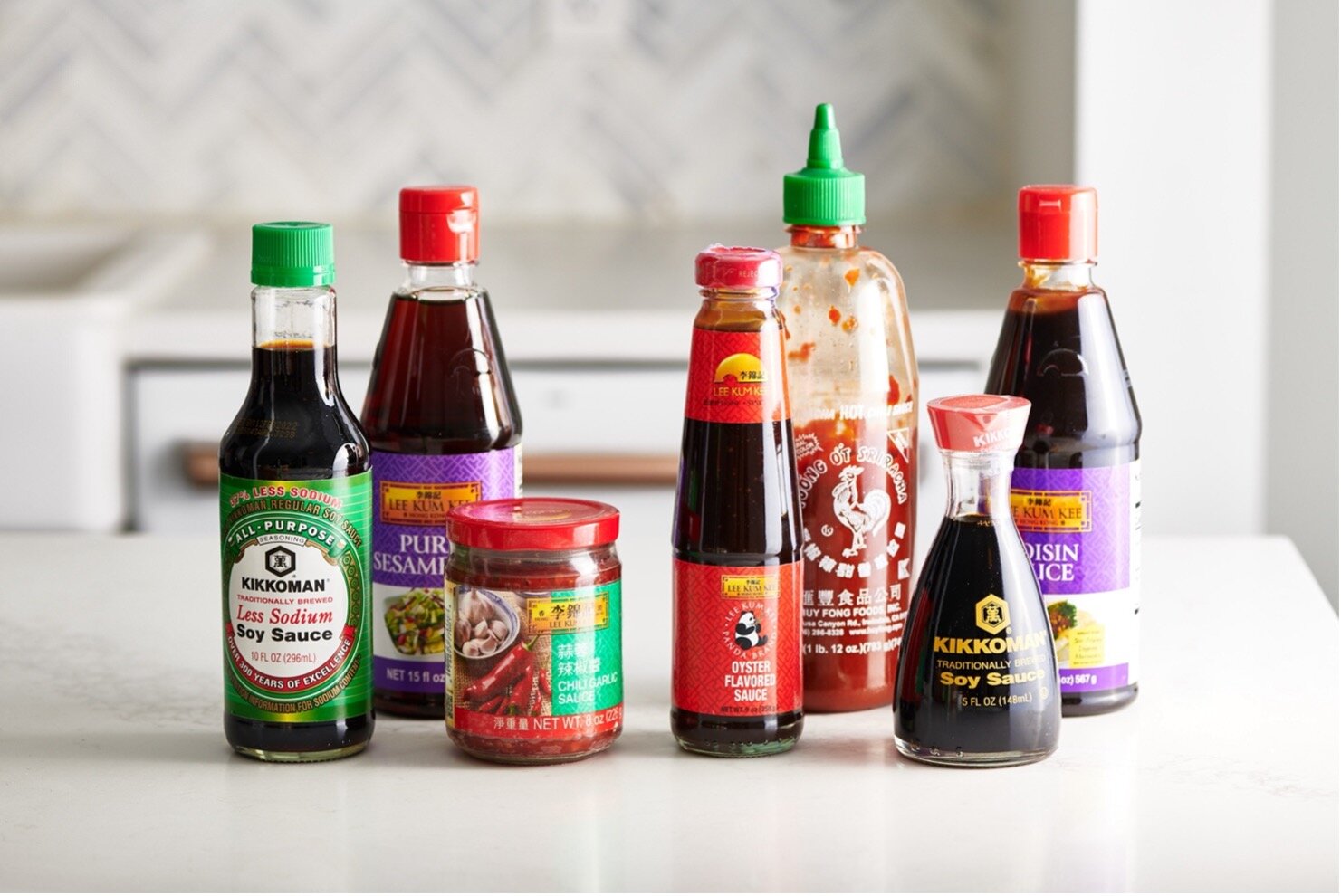Necessary Asian Sauces to Spice Up Your Life
Author: Sharon Li
In Asian cultures, there exists a distinct flavor in the foods that we eat; it’s one that I often find myself searching for in the various dishes of American cuisine. But sadly, it doesn’t seem to be replicable with mere spices. The flavor that I am describing is known as umami, a highly valued taste sensation in Asian cultures that is usually induced by several amino acids and nucleotides (such as glutamate and aspartate), or at least that is how Merriam-Webster describes it and is characterized by a distinct savory flavor. For me, umami is often the taste of 2:30am — the time before sleeping and waking dominated by an inexplicable craving for instant Shin ramen packed full of its trademark MSG flavorings. Umami is also the taste of my mom’s home cooking, something that I can’t replicate in my own dishes at my off-campus apartment, as hard as I may try to.
In Asian dishes, this umami flavor is usually created by a powerful blend of sauces, all thrown together in a calculated, but effortless, manner. One of the hardest parts of living off-campus is trying to find all of the sauces that replicate the flavors of a home-cooked meal from my family. Lucky for you, I’ve compiled a list of all the necessary home sauces and spices suited for your umami tastes.
1. Soy sauce
Perhaps the most important sauce, soy sauce is used in almost every Asian dish. A combination of salty and sweet with a tinge of bitterness, this sauce can be used both for dipping and for general flavor and color.
2. Fish sauce
Though the name itself is not very appetizing, fish sauce brings a salty, briny, pungent aspect to any dish, particularly meaty or fishy dishes. It adds an extra layer of salty complexity to marinades and completes dishes by bringing out a more complete flavor profile.
3. Toasted sesame oil
One of my favorite sauces, this deliciously smelling oil is made by pressing lightly toasted sesame seeds. This nutty oil loses flavor when heated but is delicious to eat when cold. Sprinkle this over your rice dishes or wraps as a final step for a deliciously fragrant flavor.
4. Hoisin sauce
Hoisin sauce is a mashup of a range of flavors: savory, rich, and sweet. This sauce can be used for so many things, from marinades to spring roll dipping sauces. Since it is so versatile, you can use it in a variety of dishes to enhance the overall taste of the food.
5.Sriracha Sauce
Though this popular spice staple has become mainstream in the last decade, I promise you that sriracha has existed within the Asian community long before Buzzfeed discovered it. Sriracha is the perfect amount of spicy, sour, and sweet. I put it on basically anything that isn’t cake: pho, eggs, fried rice, and so much more. This sauce is great for a spicy kick to your dishes or as a dipping sauce for your foods.
Some may say that the most overwhelming part of stocking up your sauce pantry is knowing where to get them. For that, I would recommend heading to your local H-mart or Chinatown grocery store. These places are promised lands for any and all things relating to Asian cuisine. As for the brands you should keep an eye out for: Lee Kum Kee, Kikkoman, and Kaduya all carry a great variety and range of quality, staple sauces to choose from.
I hope your tastebuds enjoy embarking on this umami journey. Happy shopping!






